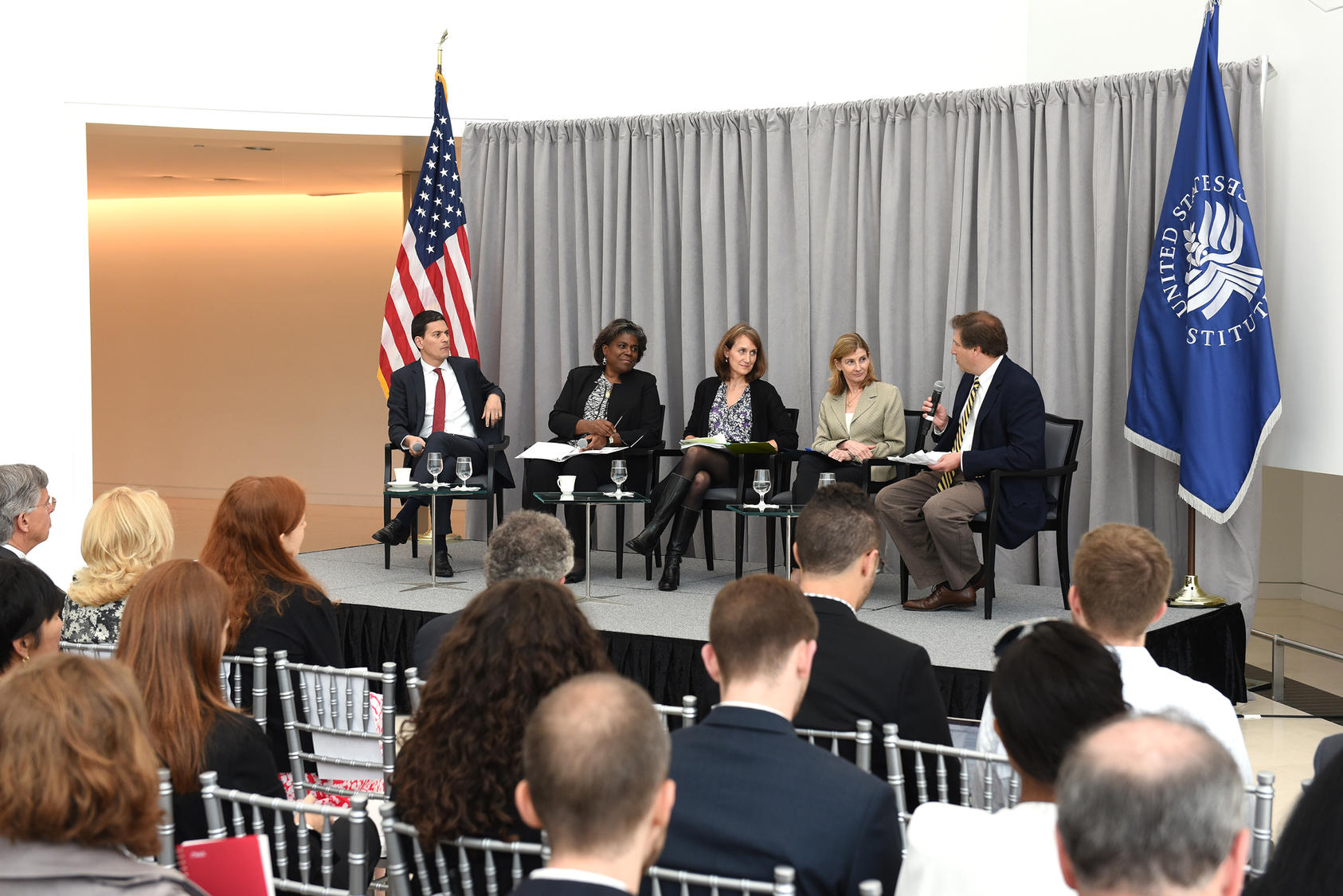Fragility, Conflict & Humanitarianism
Read the Event CoverageU.S. Assistant Secretary of State Linda Thomas-Greenfield, ex-British Foreign Secretary David Miliband and Elizabeth Cousens, a former top American diplomat at the United Nations, joined U.S. Institute of Peace President Nancy Lindborg for a conversation about the connections among state fragility, violent conflict, and humanitarianism. The discussion on June 3 took place as the U.N. finalized its Sustainable Development Goals for adoption at a U.N. Summit in New York in September.

 Increasingly, the world has seen that fragile states—those that lack effective or legitimate systems of government—have become the world’s main locus for violent conflict and extreme poverty. Just as these problems are inter-connected, the solutions will have to be integrated as well, combining the work of peacebuilding and development. The Sustainable Development Goals followed the expiration of the U.N.’s Millennium Development Goals, adopted in 2000 and expiring this year, and will guide international development priorities going forward.
Increasingly, the world has seen that fragile states—those that lack effective or legitimate systems of government—have become the world’s main locus for violent conflict and extreme poverty. Just as these problems are inter-connected, the solutions will have to be integrated as well, combining the work of peacebuilding and development. The Sustainable Development Goals followed the expiration of the U.N.’s Millennium Development Goals, adopted in 2000 and expiring this year, and will guide international development priorities going forward.
The speakers have worked for years at this nexus. Thomas-Greenfield is the top U.S. diplomat for sub-Saharan Africa with previous postings in four African countries and the State Department’s Bureau of Population, Refugees and Migration. In addition to his U.K. government service, Miliband now is Chief Executive Officer of the International Rescue Committee. Cousens led U.S. negotiations on the Post-2015 Development Agenda between 2009 and 2012 and currently serves as deputy CEO of the United Nations Foundation; and Lindborg is a former president of Mercy Corps and an assistant administrator at the U.S. Agency for International Development for the Bureau for Democracy, Conflict and Humanitarian Assistance. Assistance.
Panelists:
Gideon Rose, Moderator
Editor, Foreign Affairs
Amb (ret.) Elizabeth Cousens
Deputy CEO, UN Foundation
Nancy Lindborg
President, U.S. Institute of Peace
David Miliband
President and CEO, International Rescue Committee
Amb. Linda Thomas-Greenfield
Assistant Secretary, Bureau of African Affairs, Department of State



